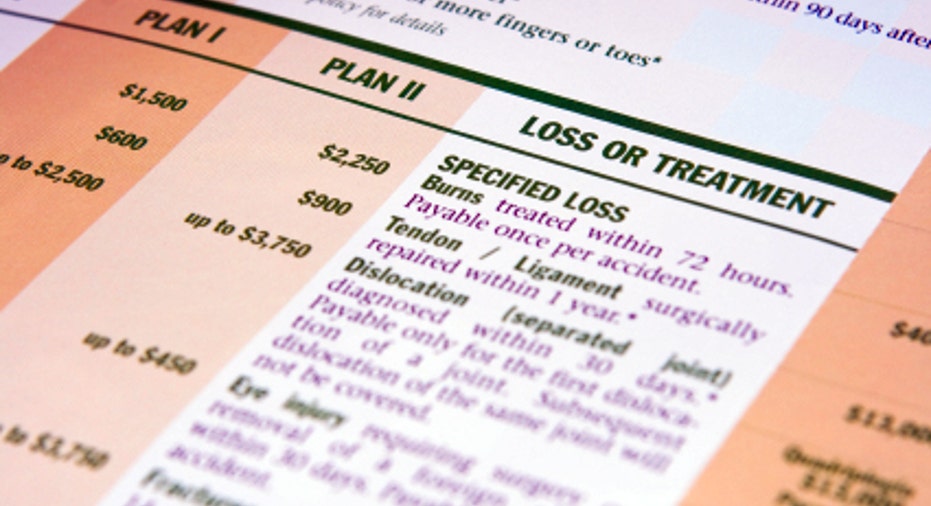Beware of ID Thieves Latching on to Obamacare

In October, millions of Americans are expected to begin shopping for health plans on Obamacare's federal and state-based health insurance exchanges.
But this new opportunity to purchase coverage also may open a door for identity theft.
Some criminals already have set up phony websites intended to lure unsuspecting applicants into giving up vital personal information. Others may try to infiltrate the ranks of health reform "navigators," paid helpers who will guide consumers through the health insurance purchase process.
In all cases, a scammer's goal is to obtain your Social Security number, medical information, bank account identifiers and credit card information, says James Quiggle, spokesman for the Coalition Against Insurance Fraud in Washington, D.C.
"The first months of health reform's launch will be prime time for scammers," he says. "Just one consumer's info could be a gold mine for identity thieves."
Thieves smell an opening
Quiggle says identity thieves likely will try to exploit weaknesses in security and fraud measures at both the federal and state levels.
Right now, officials charged with setting up health exchanges are "running a nonstop wind sprint" to put highly complex operations into place by Oct. 1, Quiggle says. The federal government is running the show for 34 states, while the other 16 plus the District of Columbia will operate their own exchanges.
"Some exchanges may be focused more on getting a robust operation going before they make anti-fraud defenses their top priority," he says.
Recent federal budget and staff cuts are compounding the problem, he says. According to news reports, the cuts are forcing the federal government to scale back its investigations of health care fraud and abuse. The potential pitfalls for consumers shopping for health care coverage worry Eva Casey Velasquez, president and CEO of the Identity Theft Resource Center in San Diego.
Bogus websites sprout up
"Our biggest concern is the scammy websites," Velasquez says.
For years, criminals have used fake websites to dupe people into wiring money or applying for loans, she says. Now, crooks are establishing bogus health insurance exchange sites to lure consumers into giving up personal information.
"This is just one more tool that they can use," Velasquez says.
Consumers may be especially vulnerable to such scams because starting next year they will be required by law to have health insurance, making them more likely to click on a questionable link, she says.
For criminals, "the return on investment is going to be high, because again, people are being compelled to do this," she says.
Quiggle says several official-looking fake exchange websites already have been shut down.
Fraudsters play 'navigators'
Another aspect of Obamacare -- its deployment of health navigators -- also could open the door to identity theft. These experts, being hired nationwide, will help health insurance shoppers determine if they are eligible for federal subsidies, and guide them through the process of purchasing a plan.
Some criminals likely will pose as navigators to prey on people looking for help, Quiggle says. He suspects these scammers will be very polished and will carry forged credentials that look authentic.
Other crooks may try to become officially certified as actual navigators so they can fleece consumers, he says. Quiggle worries that officials charged with hiring an army of navigators in a short time will not be able to properly vet candidates.
He's not alone in these concerns. California Insurance Commissioner Dave Jones recently urged his state to step up its screening process to make sure navigators undergo fingerprinting, certification and other measures. Jones says he would like to see the state do even more.
The feds give assurances
The Centers for Medicare and Medicaid Services, or CMS, the government agency responsible for implementing many of the features of health reform, didn't respond to questions about whether the federal government will educate people about phony exchange websites, or how it might screen potential navigators.
However, a CMS spokesman asserts that shoppers who purchase policies on the health insurance exchanges operated by the federal government can be assured the system will be secure.
"They can trust that the information they're providing is protected through the highest privacy standards and that the technology underlying the application process has been tested and is secure," says the spokesman, who spoke on condition of anonymity.
Despite such assurances, a recent report from the Inspector General's Office at the Department of Health and Human Services suggested that the government is months behind schedule in its efforts to test Obamacare security features.
Protect yourself from the crooks
There are several things you can do to safeguard your identity and lower your risk of becoming a fraud victim if you use an exchange to shop for health insurance.
For starters: "Anyone who claims they can enroll you in a plan before Oct. 1, 2013, shouldn't be trusted," the CMS spokesman says. The exchanges aren't scheduled to open for enrollment until that date.
The agency offers the following additional tips to avoid scammers.
- When looking for the health exchange operating in your state, look for a website that ends in ".gov" and features official government seals or logos.
- Never give up personal information to someone who calls or comes to your home unsolicited.
- Never sign blank insurance forms or other applications. Scammers may ask you to sign the documents and promise to fill out the remaining information later.
- Beware of offers sounding too good to be true: "The U.S. government doesn't conduct promotions that include winning cruises, vacations cars or other prizes," says the CMS spokesman.
Stronger fraud fight likely
As the Obamacare health insurance exchanges ramp up and open for business, Quiggle believes state and federal measures to fight identity theft and other fraud are likely to be "inconsistent and somewhat ragged in places."
But over time, consumers should get better help against scammers, he says. "Watch for the defenses to tighten considerably as the exchanges get their sea legs."
Copyright 2013, Bankrate Inc.



















